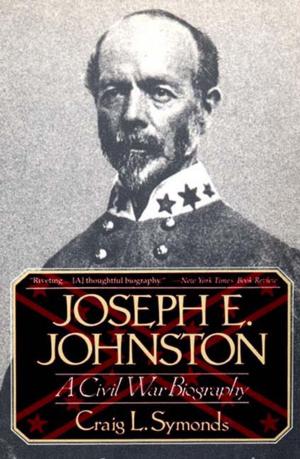Revolution on the Hudson: New York City and the Hudson River Valley in the American War of Independence
Nonfiction, History, Military, Naval, Americas, United States, Revolutionary Period (1775-1800)| Author: | George C. Daughan | ISBN: | 9780393245738 |
| Publisher: | W. W. Norton & Company | Publication: | June 13, 2016 |
| Imprint: | W. W. Norton & Company | Language: | English |
| Author: | George C. Daughan |
| ISBN: | 9780393245738 |
| Publisher: | W. W. Norton & Company |
| Publication: | June 13, 2016 |
| Imprint: | W. W. Norton & Company |
| Language: | English |
The untold story of the fight for the Hudson River Valley, control of which, both the Americans and the British firmly believed, would determine the outcome of the Revolutionary War.
No part of the country was more contested during the American Revolution than New York City, the Hudson River, and the surrounding counties. Political and military leaders on both sides viewed the Hudson River Valley as the American jugular, which, if cut, would quickly bleed the rebellion to death.
So in 1776, King George III sent the largest amphibious force ever assembled to seize Manhattan and use it as a base from which to push up the Hudson River Valley for a grand rendezvous at Albany with an impressive army driving down from Canada. George Washington and every other patriot leader shared the king’s fixation with the Hudson. Generations of American and British historians have held the same view. In fact, one of the few things that scholars have agreed upon is that the British strategy, though disastrously executed, should have been swift and effective. Until now, no one has argued that this plan of action was lunacy from the beginning.
Revolution on the Hudson makes the bold new argument that Britain’s attempt to cut off New England never would have worked, and that doggedly pursuing dominance of the Hudson ultimately cost the crown her colonies. It unpacks intricate military maneuvers on land and sea, introduces the personalities presiding over each side’s strategy, and reinterprets the vagaries of colonial politics to offer a thrilling response to one of our most vexing historical questions: How could a fledgling nation have defeated the most powerful war machine of the era?
George C. Daughan—winner of the prestigious Samuel Eliot Morrison Award for Naval Literature—integrates the war’s naval elements with its political, military, economic, and social dimensions to create a major new study of the American Revolution. Revolution on the Hudson offers a much clearer understanding of our founding conflict, and how it transformed a rebellion that Britain should have crushed into a war they could never win.
The untold story of the fight for the Hudson River Valley, control of which, both the Americans and the British firmly believed, would determine the outcome of the Revolutionary War.
No part of the country was more contested during the American Revolution than New York City, the Hudson River, and the surrounding counties. Political and military leaders on both sides viewed the Hudson River Valley as the American jugular, which, if cut, would quickly bleed the rebellion to death.
So in 1776, King George III sent the largest amphibious force ever assembled to seize Manhattan and use it as a base from which to push up the Hudson River Valley for a grand rendezvous at Albany with an impressive army driving down from Canada. George Washington and every other patriot leader shared the king’s fixation with the Hudson. Generations of American and British historians have held the same view. In fact, one of the few things that scholars have agreed upon is that the British strategy, though disastrously executed, should have been swift and effective. Until now, no one has argued that this plan of action was lunacy from the beginning.
Revolution on the Hudson makes the bold new argument that Britain’s attempt to cut off New England never would have worked, and that doggedly pursuing dominance of the Hudson ultimately cost the crown her colonies. It unpacks intricate military maneuvers on land and sea, introduces the personalities presiding over each side’s strategy, and reinterprets the vagaries of colonial politics to offer a thrilling response to one of our most vexing historical questions: How could a fledgling nation have defeated the most powerful war machine of the era?
George C. Daughan—winner of the prestigious Samuel Eliot Morrison Award for Naval Literature—integrates the war’s naval elements with its political, military, economic, and social dimensions to create a major new study of the American Revolution. Revolution on the Hudson offers a much clearer understanding of our founding conflict, and how it transformed a rebellion that Britain should have crushed into a war they could never win.















